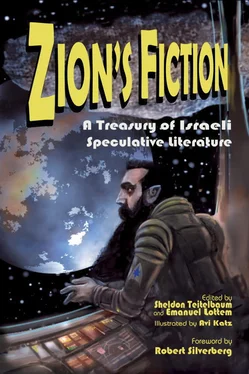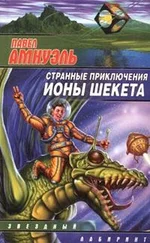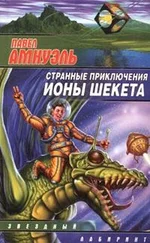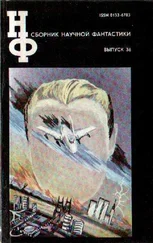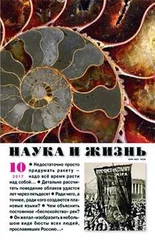The mice had taken over Nana’s street. Preserved in its old style as a Jerusalem heritage site, this street bordered on the religious neighborhoods. I didn’t think it was such a big deal, taking over that street. It had been taken over by roaches a long, long time ago. And the mice held it for just a short while. The Tin Beggar, willing to sacrifice its metallic soul, bravely defended all those unconscious people and, specifically, saved me. The Tin Beggar also evacuated people from the street, for which it won an official citation from City Hall. Lucky beggar!
Then came the police, and later on the military. The military overcame the resistance offered by the mice and drove them away, devastating half the buildings in the street as collateral damage. The way I heard it, not a single house remained entirely intact. The Stern-Gerlach mice suffered seven casualties during the military’s assault, that’s all (I myself killed more than that), because of this ability of theirs to shift to microscopic size and evade direct hits. The military, on the other hand, filled a whole hospital ward with soldiers who kept begging those around them, as I did, to think quietly .
The Stern-Gerlach mice!
How did we get ourselves in such a mess?
All thanks are due to science’s indefatigable efforts to uncover The Truth. Some smartass biophysicist had tried to measure the Stern-Gerlach effect produced by an electron beam (beta radiation) passing through living tissue. Except that the beta radiation was immediately absorbed by the tissue. So what did our clever fellow do? He drilled a hole in a cat’s skull, attached an array of powerful magnets to the sides of its head, and beta-radiated directly into the cat’s brain. The electrons were absorbed, of course, but an electromagnetic wave kept propagating as a pulse from the point of impact. Passing between the magnets, the pulse split, then split again when it passed between the next pair of magnets, and so on.
The biophysicist rubbed his hands in pleasure when the cat lost consciousness in a series of bizarre convulsions. The cat remained unconscious and slowly perished because its immune system could no longer recognize it and started attacking it.
Various animals were then beta-radiated directly into their brains, all of them responding with various ways of expiring, stranger and stranger yet. The form death took depended on the brain area radiated, and the length of time it took them to die proved to be species-dependent. And so, in this relentless pursuit of The Truth, the lab turned into an enormous slaughterhouse. All this bloody spectacle just to show that something happens when an exposed area of the brain is beta-radiated inside a magnetic field. Cleverness will get you anywhere!
The experiment would have been halted in short order were it not for this curious fact: mice that were beta-radiated into the right temporal lobes of their cortices insisted on staying alive. Furthermore, lo and behold, the electric activity in their brains was enhanced. These mice became smarter than their control group counterparts. They learned faster which were the right buttons to push. Their ability to find the relationships between cause and effect across a time interval improved—meaning, their time perception became more extended. They turned out to be the uncontested champions in running through mazes in search of bits of cheese.
This was all the biophysicist could discover. He wanted to try it on humans but was immediately told to shut up. However, one group of irradiated mice escaped the lab, multiplied, as mice do, and became Jerusalem’s scourge. The media gave them their name: the Stern-Gerlach mice. It was nearly impossible to get rid of them. You try to trap or poison a smart mouse with a good memory. In addition, the mice started massacring the cat population, making the alley cat the first urban animal officially designated a protected species.
Despite all this, the Stern-Gerlach mice had never built tools, never shifted their size… until they took over Nana’s street.
Three days after I had been injured, having recovered from all those side effects, I was released from hospital and immediately went to see Nana. Because this was how it all began….
It all began when I came to see Nana at lunchtime the day before Tish’a b’Av, kicking crumbling pieces of pavement as I went along. A stubborn growth of Bermuda grass burst through the tough surface. I reached the heavily shaded corner, under Hasson’s pear tree, that led into the alley. The sun made me sweat profusely, but it also made the pears on this tree plumper. At the end of the alley, in front of her open door, Nana sat talking with the rest of the neighborhood’s old ladies. The biddies were chatting, occasionally bursting into laughter or stabbing their synthetic wool with knitting needles for emphasis, performing fancy fencing moves.
Among the yentas sat Orit, Yaffa’s fat, unmarried daughter, making her best efforts to fit in with their Little Old Ladies world. The viciousness of her gossip, the poison in her words, and her habit of gloating were yet to be softened by age.
Coming closer, I allowed myself a tiny smirk at their gossipfest and then called out to my Nana. Her eyes lit up when she saw me. I bent over and kissed her cheek. I love Nana even when she dabbles in the sea of gossip, and my love renders this murky sea pure and clear. Nana is proud of me—her eldest grandson, the university student.
“My legs ache,” she said to me, “so why don’t you go in and warm some food for yourself? Think you can manage?”
“Sure, Nana.”
I went in, ate some, then dragged out a stool and sat there facing the old ladies, smoking a cigarette as they amped up their vicious gossip, brazenly besmirching those not present, shamelessly fawning on those who were. Every once in a while Orit would aggressively stop her needlework and ask me a question, just to be nice, to keep in touch with hers, the younger generation. I answered indifferently because she was so damned ugly.
A sound of metallic crackling and rattling came from the mouth of the alley. Hearing it the old ladies stopped their chatter, exchanging glances critical of the world-at-large. It was all I could do not to laugh at their reaction.
“The Meshuga, a curse upon its soul, is back again,” said Yaffa.
“Poor thing, if one more bit falls off it, it’ll come apart,” Nana said in its defense.
“But it’s such a bore,” commented Orit in what she must have thought was a mature manner, and squinted at me.
Avrum’s mother, who looked like an Egyptian mummy and was probably as old, held up a fragile finger and cackled, “When I was young, there were no such things around.”
“It says in the papers that they kidnap children,” said Orit.
“No, come on, it’s not kidnapping children,” replied Nana. “Poor thing, this Meshuga, it’s been in the neighborhood for years, and no child got kidnapped, ever.”
“How true,” lowed Odelia’s toothless mouth. “It’s all stories made up by the Bank. Damn the Bank, where does it get off harassing them?”
“Tomatoes!” Avrum’s mother burst out nostalgically. “When I was little we used to buy tomatoes at a store, from a person who was actually selling them. A real person. Not like today: you stick the bank card in a wall, and out comes a kilo of tomatoes.”
“Bank, schmank,” said Nana dismissively. “There’s the Meshuga. All painters have a few screws loose.”
The rattling noise grew louder, and then the Tin Beggar made its entrance. It limped in a tight, precisely controlled, clockwork way. Its left shoulder was bent, the result of an old sledgehammer blow, its face covered with a blackened patina. One eye was missing, and from the empty socket colored wires dangled down its cheek. One knee crackled, two of its fingers were broken, and a few holes in its head suggested it was missing some nuts. Just a regular neighborhood tin beggar, whom the crones gave a disdainful name to tell it apart from others of its ilk, even though tin beggars have no real names.
Читать дальше
